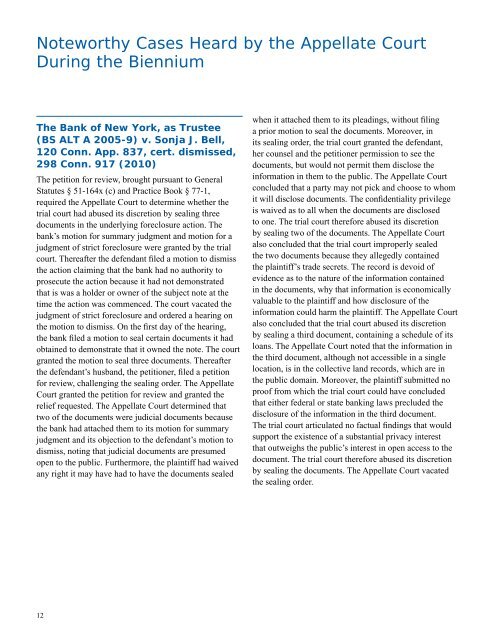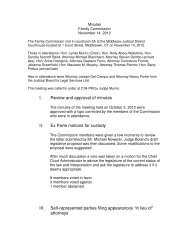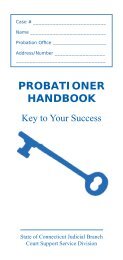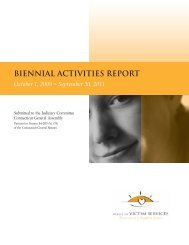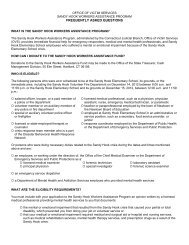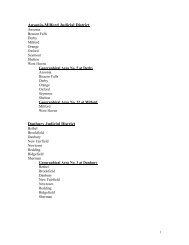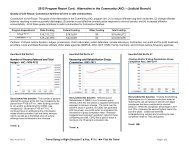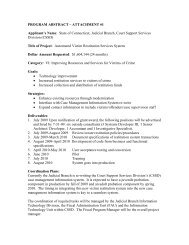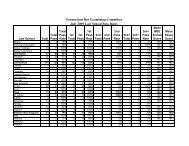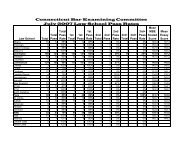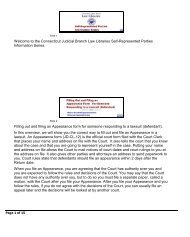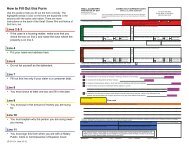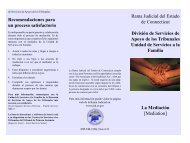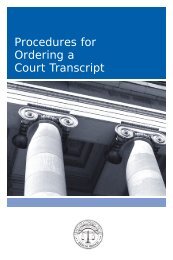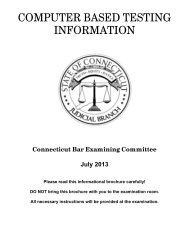Biennial Report, 2008-2010 - Connecticut Judicial Branch - CT.gov
Biennial Report, 2008-2010 - Connecticut Judicial Branch - CT.gov
Biennial Report, 2008-2010 - Connecticut Judicial Branch - CT.gov
You also want an ePaper? Increase the reach of your titles
YUMPU automatically turns print PDFs into web optimized ePapers that Google loves.
Noteworthy Cases Heard by the Appellate Court<br />
During the Biennium<br />
The Bank of New York, as Trustee<br />
(BS ALT A 2005-9) v. Sonja J. Bell,<br />
120 Conn. App. 837, cert. dismissed,<br />
298 Conn. 917 (<strong>2010</strong>)<br />
The petition for review, brought pursuant to General<br />
Statutes § 51-164x (c) and Practice Book § 77-1,<br />
required the Appellate Court to determine whether the<br />
trial court had abused its discretion by sealing three<br />
documents in the underlying foreclosure action. The<br />
bank’s motion for summary judgment and motion for a<br />
judgment of strict foreclosure were granted by the trial<br />
court. Thereafter the defendant filed a motion to dismiss<br />
the action claiming that the bank had no authority to<br />
prosecute the action because it had not demonstrated<br />
that is was a holder or owner of the subject note at the<br />
time the action was commenced. The court vacated the<br />
judgment of strict foreclosure and ordered a hearing on<br />
the motion to dismiss. On the first day of the hearing,<br />
the bank filed a motion to seal certain documents it had<br />
obtained to demonstrate that it owned the note. The court<br />
granted the motion to seal three documents. Thereafter<br />
the defendant’s husband, the petitioner, filed a petition<br />
for review, challenging the sealing order. The Appellate<br />
Court granted the petition for review and granted the<br />
relief requested. The Appellate Court determined that<br />
two of the documents were judicial documents because<br />
the bank had attached them to its motion for summary<br />
judgment and its objection to the defendant’s motion to<br />
dismiss, noting that judicial documents are presumed<br />
open to the public. Furthermore, the plaintiff had waived<br />
any right it may have had to have the documents sealed<br />
when it attached them to its pleadings, without filing<br />
a prior motion to seal the documents. Moreover, in<br />
its sealing order, the trial court granted the defendant,<br />
her counsel and the petitioner permission to see the<br />
documents, but would not permit them disclose the<br />
information in them to the public. The Appellate Court<br />
concluded that a party may not pick and choose to whom<br />
it will disclose documents. The confidentiality privilege<br />
is waived as to all when the documents are disclosed<br />
to one. The trial court therefore abused its discretion<br />
by sealing two of the documents. The Appellate Court<br />
also concluded that the trial court improperly sealed<br />
the two documents because they allegedly contained<br />
the plaintiff’s trade secrets. The record is devoid of<br />
evidence as to the nature of the information contained<br />
in the documents, why that information is economically<br />
valuable to the plaintiff and how disclosure of the<br />
information could harm the plaintiff. The Appellate Court<br />
also concluded that the trial court abused its discretion<br />
by sealing a third document, containing a schedule of its<br />
loans. The Appellate Court noted that the information in<br />
the third document, although not accessible in a single<br />
location, is in the collective land records, which are in<br />
the public domain. Moreover, the plaintiff submitted no<br />
proof from which the trial court could have concluded<br />
that either federal or state banking laws precluded the<br />
disclosure of the information in the third document.<br />
The trial court articulated no factual findings that would<br />
support the existence of a substantial privacy interest<br />
that outweighs the public’s interest in open access to the<br />
document. The trial court therefore abused its discretion<br />
by sealing the documents. The Appellate Court vacated<br />
the sealing order.<br />
12


